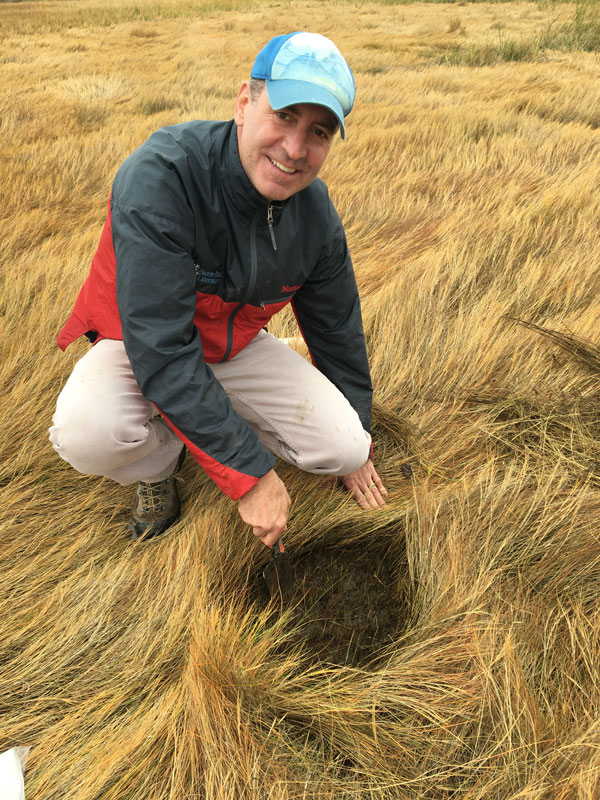Study of Mercury in a Salt Marsh Ecosystem is Funded by National Science Foundation

 Daniel Obrist, chairman and professor, Department of Environmental, Earth and Atmospheric Sciences at UMass Lowell, conducting field work at the Plum Island LTER. Photo courtesy of Daniel Obrist
Daniel Obrist, chairman and professor, Department of Environmental, Earth and Atmospheric Sciences at UMass Lowell, conducting field work at the Plum Island LTER. Photo courtesy of Daniel ObristDaniel Obrist of University of Massachusetts, Lowell and Inke Forbrich of MBL have received a collaborative grant from the National Science Foundation (NSF) to determine the origin and fate of mercury in a salt marsh ecosystem.
The study will be conducted on the northeastern Massachusetts coast at the NSF’s Plum Island Ecosystems Long-Term Ecological Research site. Forbrich is a research scientist at the MBL Ecosystems Center.
Mercury is a potent neurotoxic pollutant and leading cause for fish consumption advisories in the United States and across the world. Along the U.S. East Coast, salt marsh sparrows have shown harmful exposures to mercury with elevated blood levels, posing risks for reproductive outputs. Possible reasons for high mercury exposure in coastal ecosystems are contributions from interior watersheds or legacy industrial impacts. How salt marshes capture and transform mercury is largely unknown.

This project will study, for the first time, direct uptake of atmospheric mercury by salt marsh plants as a possible dominant source of mercury in these ecosystems. This is analogous to forest observations that show atmospheric mercury uptake by plants constitutes up to 90 percent of mercury inputs. Mercury gas is absorbed by plants in a process similar to how they take up carbon dioxide. When the plants shed leaves or die, the mercury gets incorporated into the soil, where it can be stored or released to adjacent water. Hence, an additional focus of this project is the transfer of mercury to soils and its export to the coastal ocean.

The project will involve graduate students and provide experiential learning opportunities for undergraduate students.